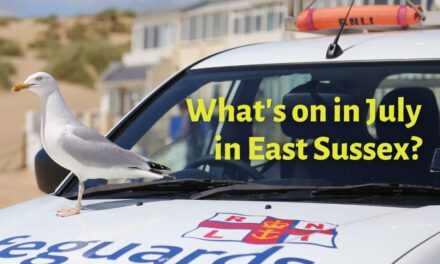If you are a parent or carer of a child with autism, you may be worried about how long journeys and disruptions to the usual routine will affect them when taking a holiday.
We’ve compiled some guidance to help you have a stress-free time when planning a holiday. We’ve also listed useful information for visiting theme parks.
Booking a holiday
It can be difficult to find a holiday that will be right for your child and their needs. It means recommendations from friends and websites aren’t always going to be suitable.
A great place to start your search for a holiday is on the National Autistic Society website. It has a directory that lists holiday venues both in the UK and abroad that have stated they are suitable for autistic people.
Because autistic children can find change difficult, booking a holiday may lead to high anxiety or other challenging behaviour.
Here are some things you could try to prepare them for the change and hopefully reduce their fears:
- spend time with them looking at photographs in a brochure or on the holiday companies website
- compile a visual support, such as a booklet with photos, to help them remember where they are going and what it will look like when they get there, and
- prepare a timetable in advance, taking into consideration any obsessions, repetitive behaviour or routines that child or young person has.
See more practical advice when planning a holiday.

Travel tips
Once you’ve booked a holiday destination, the next thing to decide is how you’ll get there. Whether you decide to fly, take a boat or go by Eurotunnel, it’s a good idea to call the travel provider first and see how they can assist you on the day.
Travelling via Gatwick or Heathrow
If you’re travelling by plane, both Gatwick and Heathrow airports offer additional assistance to passengers travelling with hidden disabilities such as autism. Staff can provide autistic passengers with a lanyard or a badge which discreetly indicate that your child has a hidden disability and you would like additional support. Gatwick also offer an autism-friendly visual guide to help you prepare your child for the experience of travelling through an airport.
It’s also worth calling the airline as they might be able to arrange a special check-in time or have a quieter area of the airport where you can wait. You can also ask about them allowing you to board first or last.
Taking the Eurotunnel
If you’re planning on travelling by Eurotunnel there is a video guide to car crossing into France. You can watch this video with your child before you travel so they have an idea of what to expect from the journey.
The National Autistic Society also advises, “It is important to take anything that is going to provide a distraction and make the journey easier. This could be access to their favourite music, a much loved book or toy.”
Travelling with Tui
Did you know you can request specific rooms in a hotel? You can also contact Tui to tell them about dietary requirements, find out about specialist kids’ clubs and get advice about travelling through the airport.
You can also call Tui’s customer welfare advice line when planning your journey and they can help find the right flight and holiday for your family!

Visiting a theme park
Kids (and let’s face it, adults) love theme parks. They can be a great way to spend quality time together. However, long queues and big crowds can be overwhelming for children and young people with autism.
Most theme parks will have accessibility help for guests with disabilities, so check the park’s website before visiting to see how they can help.
Disneyland Paris offers a variety of services to help guests with autism and other disabilities enjoy every magical moment of their stay.
You can request a priority access card, which will mean you can access certain attractions via specially-adapted entrances. Disneyland have also produced accessibility maps for visitors with visible and hidden disabilities.
Chessington World of Adventures offer a disabled access registration ID card, which comes with 10 tokens that guests can use to fast track through queues. You can apply online before your visit.
Legoland Windsor provide ride access passes to guests with autism and other disabilities, and their families. This allows you to book a ride at a specific time, avoiding the queues. Please visit their website for more information.
Thorpe Park can provide you with a wristband, which will mean you can access rides via the exit or other designated entrance. You can apply for this on the day of your visit by bringing proof of entitlement to the Help & Information point.
Please remember that most parks will ask for evidence of your child’s disability.

Sign up to our newsletter
If you’re a parent or carer of children with special educational needs and disabilities (SEND), you might be interested in our monthly digital newsletter, Parent Voice.
It contains useful information, services and events for families of children and young people with SEND.
You can sign up by entering your email address here (you can unsubscribe at any time):




